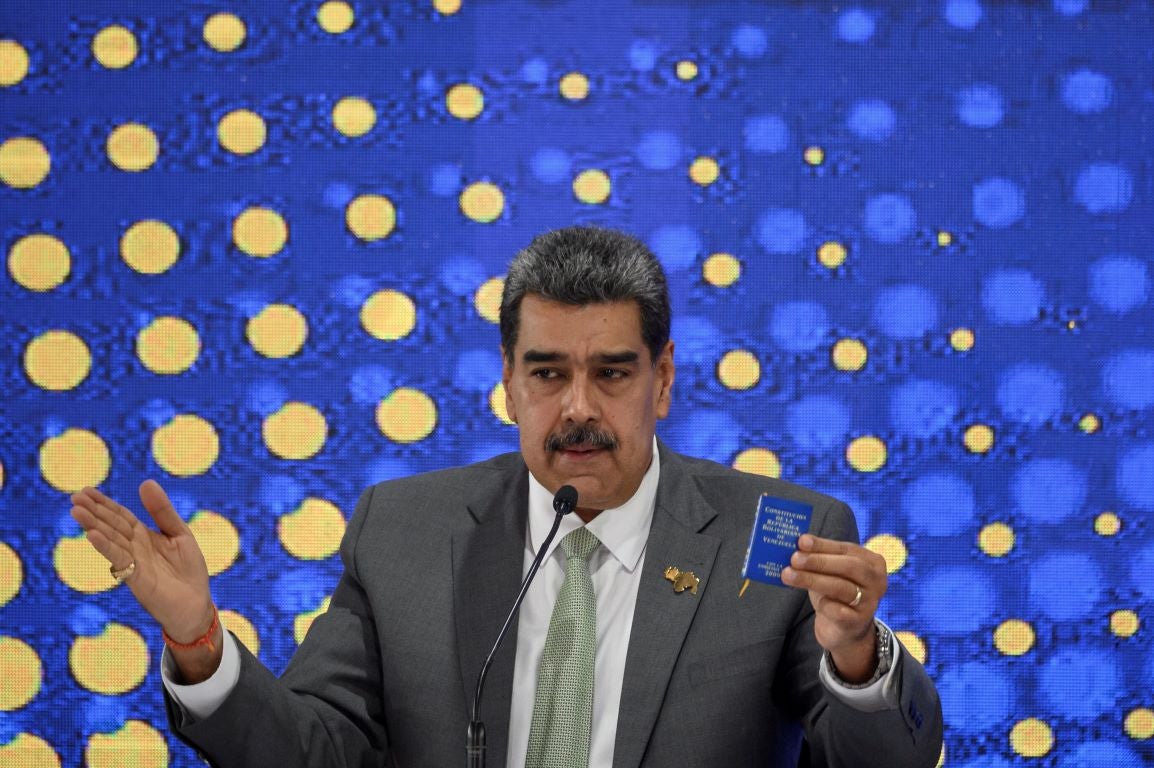
Venezuelan President Nicolas Maduro ordered the creation of a new state, “Guayana Essequiba”, on Tuesday after a referendum resulted in voters approving the annexation of land from neighbouring Guyana.
The Essequibo region is oil rich, densely forested and forms around two-thirds of Guyana’s territory. Maduro has ordered Venezuelan state oil company PDVSA to create a special department called PDVSA Essequibo to manage activities in Guayana, which must start immediately.
Following the order, Maduro signed a “presidential decree” forming the “High Commission for Defence of Guayana Esequiba”. This includes approving oil and gas and mining licences in the region.
Maduro introduced a new map of Venezuela to state legislators that includes disputed territories, further ordering a census among the residents of the annexed territory, who will now be given Venezuelan nationality.
The legislators have also been asked to draft a law that bans hiring any company that has previously worked in Guyana’s disputed waters. The companies operating there currently will be asked to leave the area within three months.
Informing 800,000 people of Guyana of the annexation, Guyanese President Irfaan Ali said in his television address: “I have spoken to the secretary-general of the United Nations and several leaders, alerting them of these dangerous developments and the desperate actions of President Maduro.”
Ali also said in an interview with CNN that the country is trying to engage with allies like the US for “defence cooperation”.
Brazilian President Luiz Inacio Lula da Silva has assured Ali that “Brazil stands strongly with Guyana and that they would not seek any reckless behaviour by Venezuela”.
Venezuela has claimed the Guyana territory for years, disputing the 1899 ruling by international arbitrators that set the current borders. Addressing the media, US State Department spokesperson Matthew Miller said, “The 1899 award determined the land boundary between Venezuela and Guyana should be respected unless or until the parties come to a new agreement or a competent legal body decides otherwise. So, we would urge Venezuela and Guyana to continue to seek a peaceful resolution of their dispute. This is not something that will be settled by a referendum.”
Since the discovery of oil off the coast of Essiquibo in 2015, Guyana has seen significant investment in infrastructural projects, with oil revenue contributing $1bn each year to the government. ExxonMobil is one of the key players in Guyana, with a production capacity of approximately 620,000 barrels per day. Guyana is set to surpass Venezuelan oil production, becoming the world’s highest per capita oil producer.
ExxonMobil and other companies have been asked to leave Guyana within three months under the new directive. Venezuela’s sour relationship with ExxonMobil goes back to 2007 when the country nationalised ExxonMobil’s oil projects. In retaliation, ExxonMobil filed an arbitration case against Venezuela over the Cerro Negro project, a joint venture between the government and the company.
Seven years later, in 2014, a World Bank arbitration ordered Venezuela to compensate ExxonMobil with $1.6bn (56.89bn bolivars).
Guyana has described Maduro’s threats as an attempt to distract from a wide range of domestic challenges in Venezuela.



